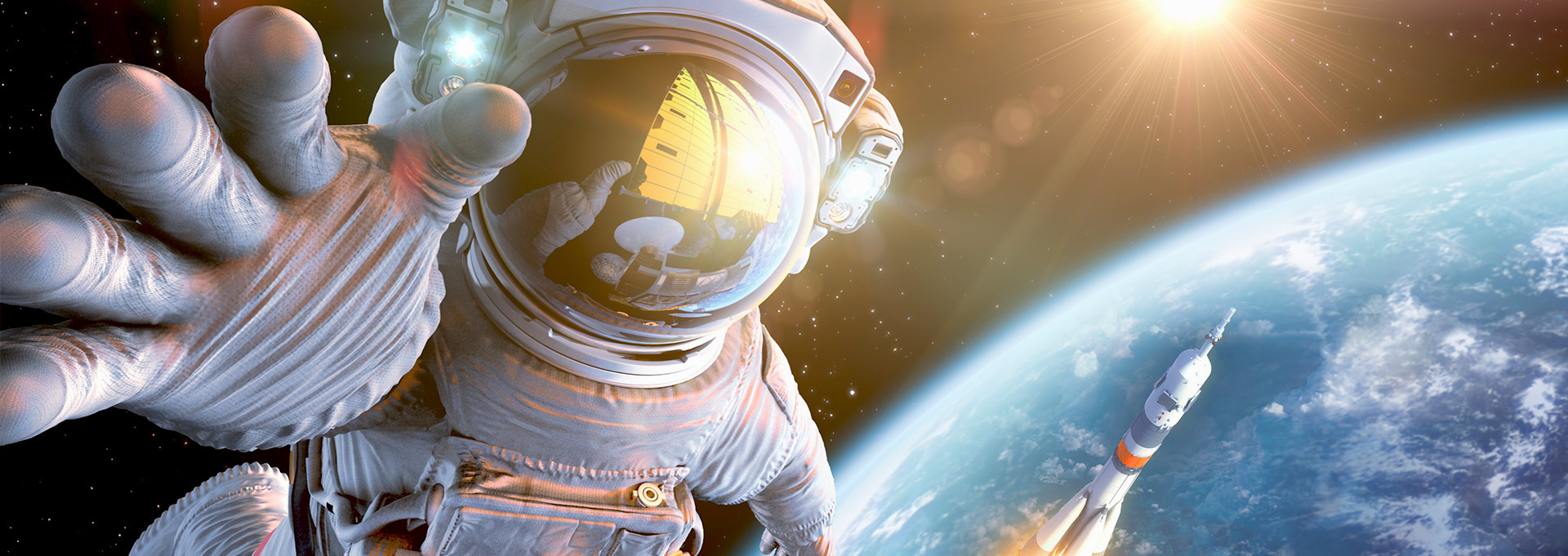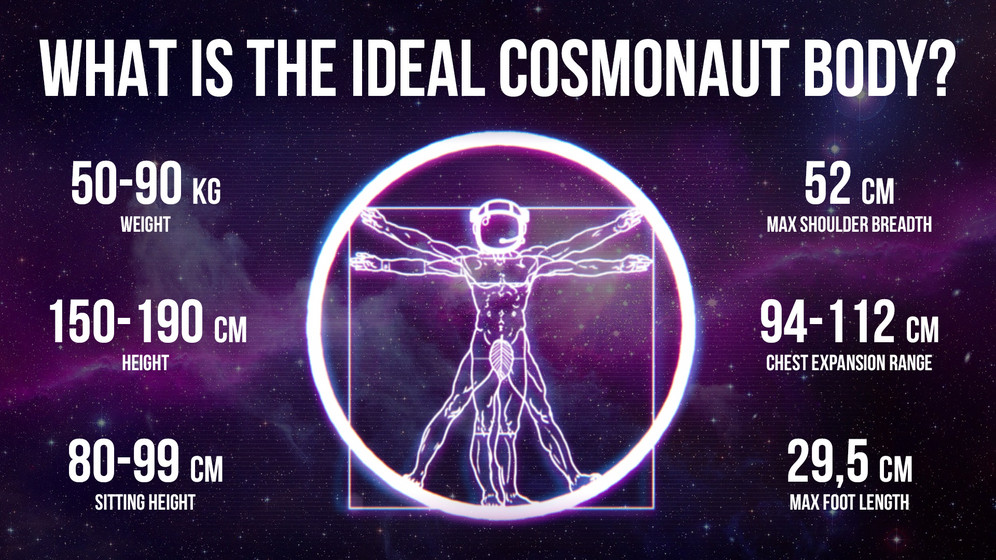Becoming a Russian cosmonaut: a step-by-step guide

If you’ve always dreamed of flying in a spaceship to distant worlds, floating high above the Earth or stepping out onto the Moon, but never knew where to start or how to pursue your dream space job, here’s your firsthand guide based on how real applicants made it through the latest Roscosmos selection round.
1. Study the basic requirements
“I was looking for a tick box, where I’d say, “that's me out, dammit, I could’ve become a cosmonaut!” But I read [the requirements list] to the end, and there was no such point”, says Andrey Sdatchikov, an aviation engineer and contender in the Russian space agency's 2017 recruitment drive for new candidates.
Roscosmos' selection is open to brave Russian men and women under 35 years of age, who have a degree in engineering, science or aviation. Professional experience in aviation or the rocket industry isn't obligatory but is, as all good recruitment ads say, highly desirable!
2. Know your body measurements
A spacewalk is no catwalk, but aspiring cosmonauts need bodies that meet stringent criteria: height must be between 150 and 190cm, weight can't exceed 90kg and even hip width, shoulder breadth and foot length have to be right. They can't make individualised space suits, so cosmonauts have to be hired to fit, and not just the suits, the rocket seats are a snug fit too!

Such restrictions may seem unfair, but today's cosmonauts are more generously proportioned than their predecessors of 60 years ago when Yuri Gagarin was launched into space. Back then ideal candidates couldn’t be taller than 170cm, so Gagarin’s shorter stature (157cm) was a big advantage.
3. Fitness is everything (almost)
Excellent health and superb physical shape are a must. Candidates have to demonstrate endurance, strength, agility, balance and coordination. Swimming 25 metres in less than 19 seconds or managing at least 14 pull-ups are two tiny examples of what the would-be cosmonaut has to be able to achieve.
4. Learn English and hit the books
Knowledge of English is also required as that’s the working language aboard the International Space Station (ISS). To be fair, foreign astronauts travelling to the ISS also need to know Russian, because Russia's Soyuz spacecraft, operated from Star City, is still the only way to hitch a ride there.
Cosmonaut candidates also have to be tech-savvy to absorb loads of information and learn how to handle the complex, space-age hardware. If that wasn't enough, Roscosmos also expects prospective employees to be well versed in the history of Russian cosmonautics.
5. Prepping is everything
The space agency only recruits candidates when it needs new cosmonauts. Vacancy announcements aren’t at fixed times so if you don’t want to be caught off guard, make sure you’re ready to throw your hat into the ring when the call goes out.
Konstantin Borisov was a business consultant, clearly not the kind of CV that would generally attract a space recruiter's attention, but he's always dreamed of space. Determined to be ready, aged 30, he signed up with the Moscow Aviation Institute and gained the right qualification just before the campaign was announced.
6. Get your paperwork together - lots of it!
Your application needs to include a substantial file of various documents: these include a police certificate confirming that you don't have a criminal record, diplomas and degrees, as well as countless medical reports. In fact, no fewer than 56 pieces of paper are required, and each one needs to be duly stamped and countersigned.
7. Wait
Once your application has been sent to Star City, it can take weeks before you hear whether or not you're even in the running. In 2017, out of 420 aspiring space adventurers, only 103 made it to the selection stage.Then it takes several weeks more for a committee to put you through your paces in thorough and intense medical checks, physical tests, psychological evaluations and mental examinations at the Yuri Gagarin Training Centre (GCTC).
“Almost 400 questions. Memory tasks, reaction time tasks,” explains Andrey Sdatchikov. “Some questions they repeat, probably, to see if you are lying.”
“And they don’t give you time to rest. You switch from one topic to another for seven-eight hours straight. They also take your pulse into account,” Konstantin Borisov recalls.
After almost a year and a half, Andrey and Konstantin are finally told if they made it, or not!
8. Infinity and beyond?
Not even passing all the stages successfully will mean that your place on the next mission is in the bag. In fact, it means you've hardly started, but you are considered a “cosmonaut candidate” who now faces two years of an intensive training program at the GCTC that includes exams every two weeks.
Underwater training, wilderness survival courses and Soyuz and ISS simulators are among the many activities in which aspiring cosmonauts don't just need experience; they need to excel.
So surely, once you've jumped through all those hoops, you're guaranteed to blast off into space after all that exercising and studying? Sadly not! There are currently 25 members of Russia’s cosmonaut unit, and 12 of them have yet to make it into space.
It's a tough selection process, but anyone who really wants to become a cosmonaut will assure you that all that effort is worth it. “How is it possible not to want to be a cosmonaut? I think everyone must dream of it. I imagine waking up somewhere, not here, and seeing Earth floating beneath me. That’s happiness, I think,” says Konstantin Borisov, one of the final eight candidates to be chosen by Roscosmos in 2018.
To see his and other journeys to the stars, don't miss our latest documentary, To Be a Cosmonaut.